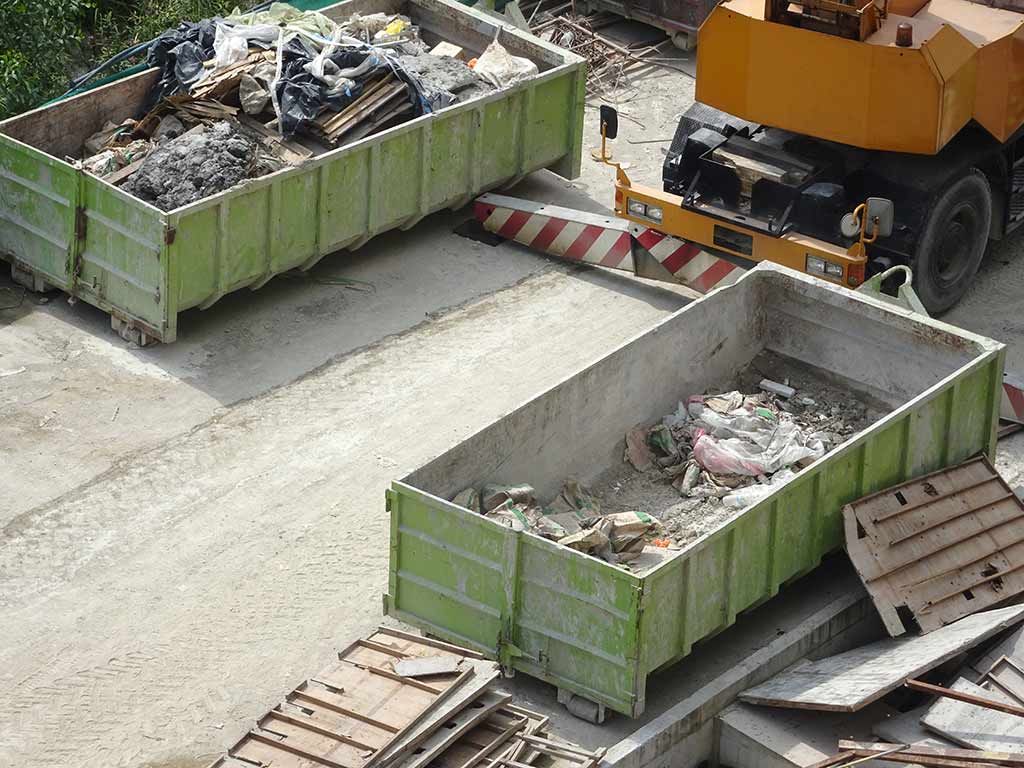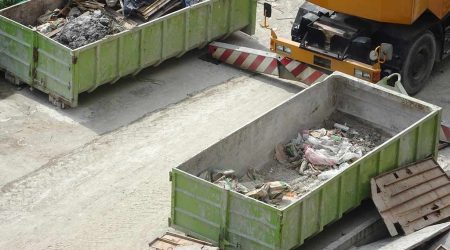Implementing a waste management plan with roll-off dumpsters for a commercial development project involves several key steps to ensure efficient, environmentally responsible, and cost-effective handling of waste materials. Here’s a comprehensive approach –

Assessment and Planning
Identify Waste Types: Start by identifying the types of waste your project will generate. This includes construction debris, hazardous materials, and general waste.
Estimate Volume: Estimate the volume of waste to be generated. This will help in determining the size and number of dumpsters needed.
Select Appropriate Dumpsters: Choose the right size and type of roll-off dumpsters based on the waste assessment. Different sizes are available, ranging from 10 to 40 cubic yards.
Waste Separation Strategy
Recycling and Reuse: Plan for the separation of recyclable and reusable materials from waste. This can significantly reduce disposal costs and environmental impact.
Hazardous Waste Handling: Ensure proper segregation and disposal of hazardous materials, following local regulations and guidelines.
Scheduling and Logistics
Strategic Placement: Determine the best locations for dumpster placement considering accessibility for waste disposal and pickup, as well as compliance with site safety and regulatory requirements.
Pickup Schedule: Coordinate with the waste management company for regular pickup schedules to prevent overfilling and ensure a tidy site.
Vendor Selection
Choose a Reputable Company: Select a waste management company with experience in handling commercial development projects. They should offer reliable service, competitive pricing, and compliance with environmental regulations.
Negotiate Terms: Discuss and agree on terms, including rental duration, waste handling fees, and any additional services required.
Compliance and Documentation
Regulatory Compliance: Ensure that your waste management plan complies with local, state, and federal regulations concerning waste disposal and recycling.
Maintain Records: Keep detailed records of waste generation and disposal. This is crucial for regulatory compliance, cost tracking, and evaluating the effectiveness of your waste management plan.
Communication and Training
Site Personnel Training: Train project personnel and subcontractors on waste separation, proper disposal practices, and the importance of following the waste management plan.
Signage: Use clear signage around dumpsters to indicate the type of waste that goes into each, ensuring effective separation and recycling.
Monitoring and Adjusting:
Regular Reviews: Periodically review the effectiveness of the waste management plan, monitoring waste volumes, disposal costs, and recycling rates.
Adjustments: Be prepared to adjust the number of dumpsters, pickup schedules, or separation strategies based on actual waste generation and project progress.
Implementing a comprehensive waste management plan with roll-off dumpsters requires careful planning, coordination, and ongoing management. By following these steps, you can ensure that your commercial development project manages waste efficiently, responsibly, and in compliance with environmental standards.
Circle J Roll-offs offers roll-off dumpster rentals in Montgomery and Mobile, Alabama to meet your commercial and household needs. We offer dumpster rentals for construction or home projects and also offer recycling services, environmentally-friendly waste removal options, services for the National Cardboard Pickup Program, and LEED-certified waste management.
Contact us today to get started with your roll-off dumpster needs.




